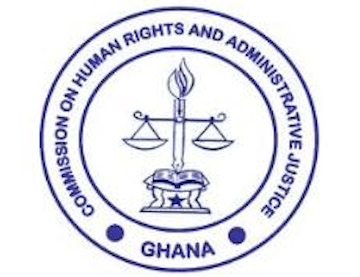CHRAJ cannot be trusted to fight corruption – Oguaa residents
 Some residents in the Cape Coast Metropolis have said the Commission on Human Rights and Administrative Justice (CHRAJ) alone, cannot fight the canker of corruption.
Some residents in the Cape Coast Metropolis have said the Commission on Human Rights and Administrative Justice (CHRAJ) alone, cannot fight the canker of corruption.
They said the anti-corruption institution had over the years done their best but this was not enough to fight corruption which is a bane on the country’s development.
These were contained in a report after a survey was conducted to ascertain citizens’ knowledge, perception and experiences of corruption in the Cape Coast Metropolis by the Ghana Anti-Corruption Coalition (GACC).
CHRAJ is mandated under the 1992 Constitution to investigate abuse of power and all instances of alleged or suspected corruption and the misappropriation of public funds.
The report said only 10 per cent of the people in the metropolis trust CHRAJ to deliver on its mandate effectively.
It said the Central Government and the media are the trusted institutions to fight corruption in the society.
Forty-five percent of respondents, the report said, the Cape Coast Metropolitan Assembly has not made the desired effort to fight corruption in the metropolis.
It said forty-nine percent were also unaware of existing anti-corruption institutions fighting corruption while six per cent affirmed that efforts were being made to curb corruption.
The report said more than 70 per cent of people living in Cape Coast and its environs were willing to support the fight against corruption.
Similarly, the survey said, 60 per cent were willing to report corruption and believed the ordinary Ghanaian could make a difference in combating corruption as well.
Majority of the residents in the metropolis perceived the police, civil servants, judiciary, political parties and the Driver and Vehicle Licensing Authority (DVLA) as the most corrupt institutions while the military was perceived to be the least corrupt institution.
Mr Bright Sowu, Senior Research Officer- GACC, said the survey was to assess citizens’ knowledge on various concerns at the district level.
He said the objective of the Policy Dialogue is to share the findings of the report with the stakeholders, elicit their views and to help address issues raised in the report as well as develop an appropriate action plan to deal with it.
Mr Sowu said the report provided district specific evidence as the basis for engaging district level government institutions as well as other stakeholders with the aim of reducing corruption at that level.
Participants at the forum included senior staff from the Commission on Human Rights and Administrative Justice (CHRAJ), the Police, the National Commission for Civic Education, representatives of political parties, the District Assembly, Civil Society Organizations and DVLA.
Source: GNA
